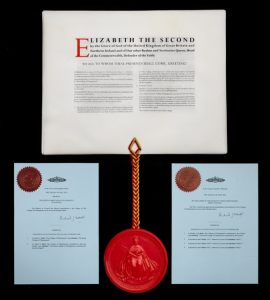The Royal College of Chiropractors (RCC) is an apolitical professional membership body. It promotes and supports high standards of education, practice and research, enabling chiropractors to provide, and to be recognised for providing, high quality care for patients.
A brief history of the RCC
The legislation underpinning the UK chiropractic profession, the Chiropractors Act, received Royal assent on 5th July 1994 and the Privy Council announced the membership of the General Chiropractic Council (GCC), the profession's registering body, on 28th January 1997.
During the intervening period, it became clear that the Act would not fulfil all the aspirations of the profession in terms of moving into the mainstream of healthcare; there was an obvious gap between the GCC as the registering body and the professional associations acting as trade unions. This gap related to such areas as postgraduate education and training, research and specialisation.
On the advice of a senior medical figure, an organisational model similar to that of a Medical Royal College was devised. Thus, the College of Chiropractors was conceived during 1997 and incorporated in 1998 as an independent body to develop, encourage and maintain the highest possible standards of chiropractic practice for the benefit of patients.
Over the next couple of years the embryonic ‘College’ grew with a regional faculty infrastructure, the mainstay of the organisation, becoming firmly established in order to foster education locally. As an independent body, separate from any of the political groups, members were able to share information and expertise from all areas of the profession. Following its incorporation in October 1998, the College of Chiropractors was formally launched on 28th April 1999 at the King’s Fund.
The College actively fosters patient and public partnership through the Lay Partnership Group. It offers its membership a wide and growing range of benefits including a UK-wide programme of subsidised CPD events via a unique infrastructure of regional and clinical interest groups or 'faculties'.
At a meeting of the Privy Council on Wednesday 12th November 2012, Queen Elizabeth II approved the grant of a Royal Charter to the College. Rarely granted, a Royal Charter signals permanence and stability and, in the College’s case, a clear indication to others of the leadership value and innovative approach the College brings to the development of the chiropractic profession. The Royal Charter essentially formalised the College’s position as a unique, apolitical, consultative body, recognising its role in promoting high practice standards and certifying quality and thus securing public confidence.

In February 2013, Queen Elizabeth II also gave permission for the College to change its name to The Royal College of Chiropractors. The Royal title was sought to help the public understand that the College has a similar role to the Medical Royal Colleges in terms of promoting standards for practice quality, running postgraduate training for new graduates, providing continuing professional development opportunities and supporting research.
Tim Jay, Founding President of The Royal College of Chiropractors, said:
‘It is particularly important, now that NHS funding for chiropractic treatment is emerging, that patients are aware of their treatment choices, that they know the care chiropractors provide for low back pain is a valid option supported by NICE and that the familiar entity of a Royal College is helping to support their interests.'











